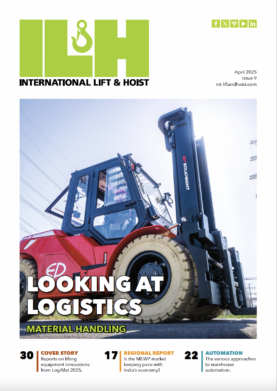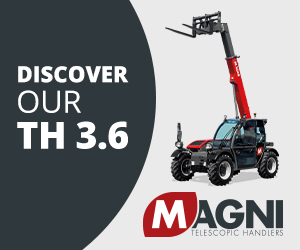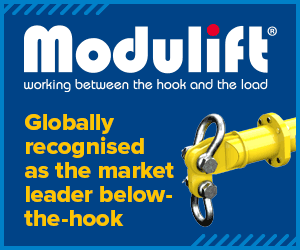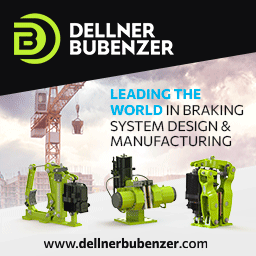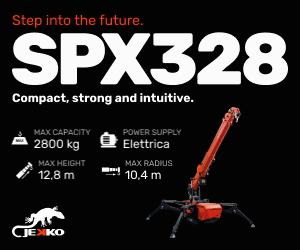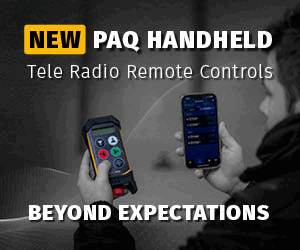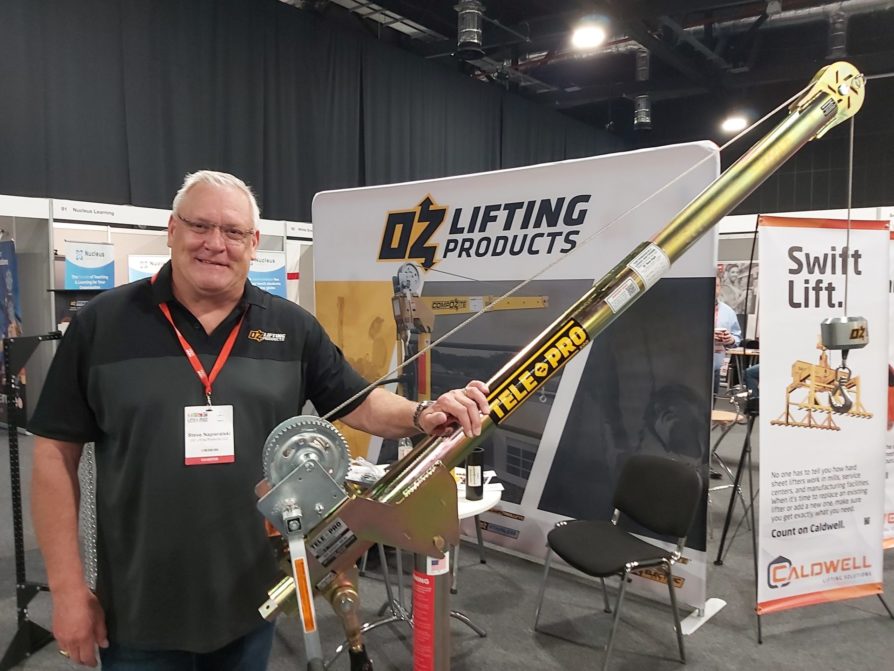)
Look who’s talking
A team’s ability to have respectful, meaningful conversations is a cornerstone of healthy company culture, says Steve Napieralski, president at Oz Lifting.
If you read this magazine’s recent ProMat review, you’d have seen an interview with Parker Hale, inside sales specialist at my company, in which he reflected on his first trade fair appearance.
“Wow,” Parker said. “I expected the show to be large, but I was amazed when I walked into McCormick Place for the first time. I did not expect there to be that much room under one roof.”
It was a great experience for one of our newer employees to work an exhibit for a week and meet some of the people that use our equipment. He certainly came away with a better appreciation of how our products fit into the marketplace.
It took me back. I went to my first material handling event in the early 1990s; it was called the Plant Engineering & Maintenance show, from memory. I recall how eye-opening and new everything was. Every event we go to there are people, like Parker, doing it for the first time. We tend to forget that amid the hustle and bustle.
However, my main takeaway from Parker’s eloquent responses was that it is important to constantly be mindful of the level of experience and knowledge base of everyone you engage with – colleague, customer, end user, etc – and respect them all.
“I was surprised by the amount of people that were walking through; they were from so many different backgrounds and nations too,” Parker added.
As these people stop at an exhibit or cross paths and talk in the aisles, the individuals getting the most from each encounter are those that can understand the needs of the person they’re talking to and present solutions to their problems. As I’ve said before, it’s why listening is crucial. Misread, misunderstand, misinterpret, and you’ll miss altogether.
ProMat brings together manufacturing and supply chain solution providers, but we participate in many events. At the Water Environment Federation Technical Exhibition & Conference (WEFTEC), we engage with those that provide pumps and railings for wastewater plants; they use our davit cranes to lift semi-submersible equipment, for example. We often talk about the different material we have incorporated into our cranes, whether it be composite, aluminium or steel, and when you might use one over the other. The principles, from ProMat to WEFTEC, are the same.
All the world’s a stage
As Parker said, this is certainly true of a trade show, but similar in day-to-day life as well. Think about someone in their early moments at a company and/or an industry. I believe that the biggest mistake we can make is to assume they know nothing. It’s remarkable how quickly people catch on and get the gist of tools and their application. Yet, they obviously don’t have the same knowledge as someone that has been in a position for decades.
A technique I use is to teach them how products are used in the field. This way, valuable information can be imparted without it appearing patronising. Even a day-one newcomer will know that a crane lifts things, but what, when, where, why, and how? That’s the important stuff. Once it becomes clear how they’re used and what features add safety and efficiency to the point of use, then it’s just a case of drilling further down into the engineering and science behind it all.
Each layer of a supply chain presents different opportunities to get it right—and wrong – when working with people. Every conversation is like the next person calling on Parker at our ProMat booth, or a WEFTEC attendee presenting us with another semi-submersible application. Dealers and distributors come in all shapes and sizes. With new partners, we talk about how easy it is to do business with us in terms of reiterating that there is no minimum order quantity, outlining our freight policy, and giving clarity around shipping turnarounds. An established dealer, meanwhile, might see such information as a sales pitch, so, instead, we talk about new products and/or application success stories.
In each instance, it’s possible to think on one’s feet, which is simply a skill that must be mastered by anyone working a trade show exhibit or talking to professionals in dozens of different sectors daily. When talking with someone that works around saltwater, it’s prudent to mention a stainless steel line of products or remind them how composite material doesn’t rust. When an oil and gas worker comes calling, then a spark resistant solution will get them thinking. The tone must be adjusted again when talking to nuclear and then general manufacturing contacts.
What’s in a name?
Without getting too technical, another reason it’s necessary to remember who you’re talking to is that the same product can be referred to differently, depending on who’s in the conversation or around the meeting table. A lever hoist can be called a come-a-long or a lever puller; a chain hoist can be called a chain block. There are cultural differences between large, corporate companies and mom and pop shops (small, family-owned business) too. As culture changes, language and tone does as well. Big companies seem to be top heavy with several individuals needing to sign-off on a new direction or product release. The smaller companies can be nimble and shift gears very quickly. Some corporates can be more concerned about their shareholders than their customers.
I always remember some advice I was given when I set out in business: hire slow and fire fast. Your culture is one of the most important parts of your company, and the way people communicate is a barometer by which to measure it. Our company has worked hard at identifying people that fit in. Even the smartest person won’t be hired if their addition to the team doesn’t represent a good cultural fit. We don’t tolerate co-workers talking down to each other and especially not to our customers. It just doesn’t happen. And it shouldn’t at your company either.
“I greeted people with a smile, brought a positive attitude, and—most of all—listened to the customers’ needs. The rest is straightforward” — Parker Hale. Hear, hear.



